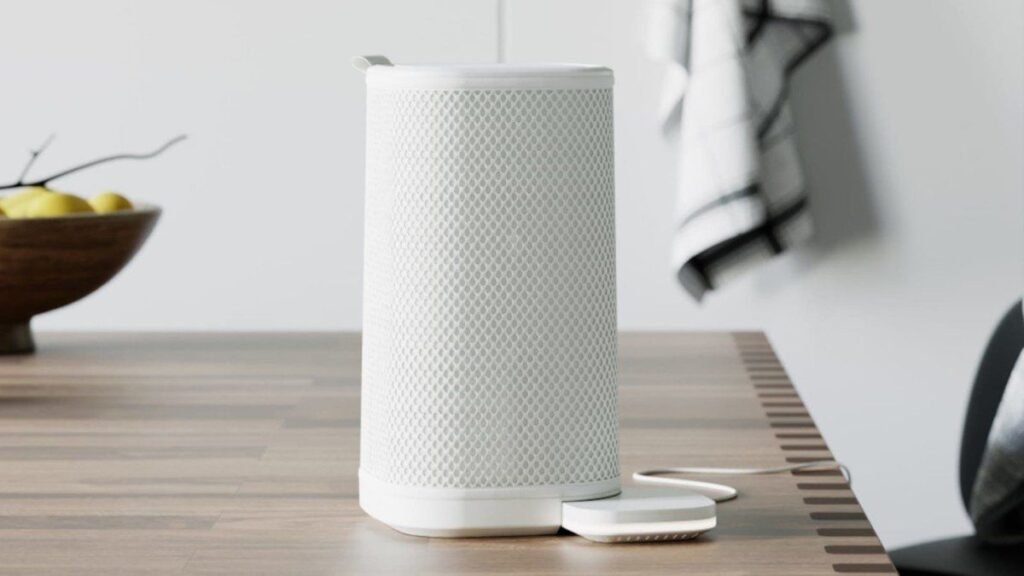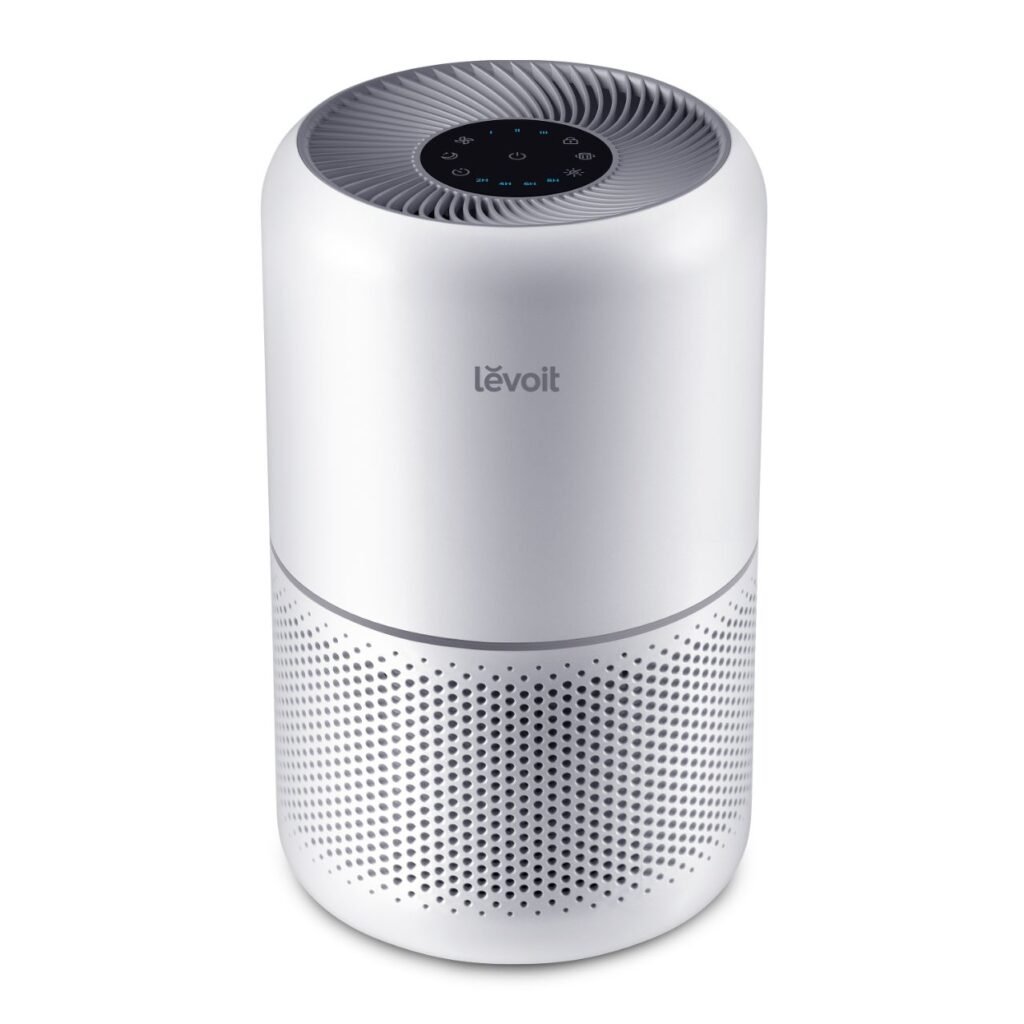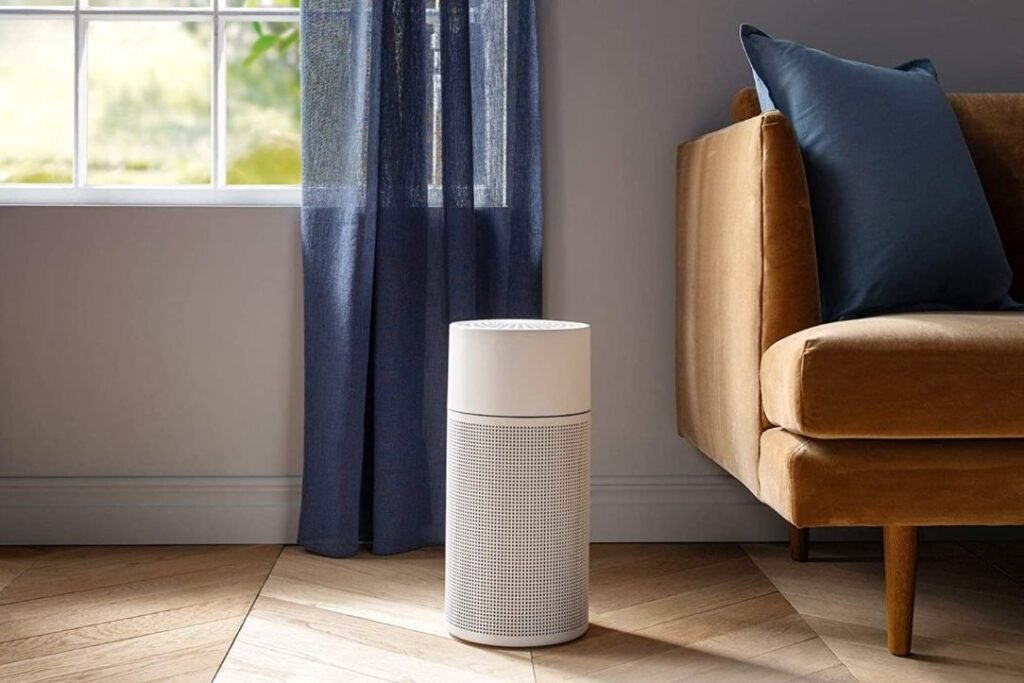
Disclaimer: The content below is written to share our experience and should not be regarded as medical advice. Please consult your Doctor should you have any questions.

Indoor air within our homes can have up to five times more pollutants than outdoor air can, air purifiers promise to clear the dust, pollutants, mold and other large particles that cause health issues from the air we breathe.
An air purifier is great for health as it improves overall indoor air quality and makes symptoms in asthma sufferers or allergy sufferers more bearable by removing common triggers such as dust, pollen and other pollutants in the air that we breathe in.
The benefits of air purifiers can also be noted more dramatically in younger people and older people, but with all the different type of air purifiers on the market and airborne particles out there, you want to be making sure you get the best purifier for your health.
So to make it all a little more simple, we have gone into some more detail about air purifiers below, how they work, why you should use them and what to look for in the best model to improve your respiratory health!
Before we can get into all the health benefits one can have from using an air purifier in their home, let's explore what these machines do, the different types there are to choose from on the market and how they work.

An air purifier is essentially a fan that cleans the air from pollutants inside of your home, it does this by using various filters and cleaning technologies according to the model you have brought and filtering them out to flow clean air back into your room.
Most air purifiers come as small units, but they can also be commercially large or attached to an HVAC unit, they allow you to remove a huge variety of particles from the air, from dust for asthma sufferers to pet dander for people with animal allergies.
There are five main types of air purifiers to choose from on the market if you are looking to improve the indoor air quality inside of your home, some are best for getting rid of unpleasant odours, while others are better at clearing airborne allergens, we will discuss them below along with their pros and cons.
HEPA air filters are one of the most common kinds of air purifiers on the market as a cleaner for the air and are the best for helping trap allergen particles and even mold which can help indoor air quality and people with breathing-related issues.

They filter 99.97% of particles from the air and can take particulates up to a small size of 0.3 microns which is great as the standard of dust particles and mould spores tend to be around five microns in size.
HEPA air purifiers work by sucking the indoor pollutants through the machine into the filter, larger particles then get stuck to the filter air purifier component, some pollen particles may become embedded or simply stick to the filter purifier, while other small airborne particulates might diffuse in a zig-zag pattern inside of the HEPA filter, which allows a greater chance to trap particulates that would typically be small enough to just pass straight through.
HEPA filters in air purifiers are beneficial to your health as they stop you from breathing in so many bad airborne particulates such as mould spores, they are also great for people with allergies to dust and pollen, as this removes from the air.
They are additionally great as they can be added to other filters such as carbon and UV to help clean the air of germs better and don't emit any dangerous byproducts such as ozone which can be bad for your health.
There is no negative impact of HEPA filters on health, as all they do is improve the air quality you are breathing, however, they do have a fair few maintenance costs and can cost a lot to keep powered, you will need to change the filter often too so as you can keep a healthy home environment.
Next up we have carbon air purifiers, these types of air purifiers operate with charcoal and are the best option for adsorbing pet odours or chemical odours in the air thanks to how it traps air molecules, they tend to be used a lot in the outdoor environment after disaster oil spills.

Carbon air purifiers work by using adsorbents on their surface which trap and adsorb air molecules containing different odours, it uses electrostatic forces to complete the bonding process which removes smells from the air. These types of filters are best suited for gas pollutants, not larger particle sizes.
Carbon air purifiers when used in conjunction with HEPA filters truly clean your air and improve its overall quality, carbon air purifiers stop you from breathing in VOCs and other air pollutants, as well as preventing you from breathing in or smelling smoke which can be unpleasant and put you at potential health risk.
Using a carbon air filter alone in your air purifier will not have many health benefits as a HEPA filter would, as it can't filter out bad particles such as mold and dust or pollen, so no matter what, you would have to use a HEPA filter too so as you can have a better effect on your health.
Ionic purifiers are still on the market and are a no filter air purifier, but are much less popular than HEPA filter air purifiers as they can have some negative health side effects when the ionic air purifier is used around people.

Ionic type of air purifiers come in two types; electrostatic precipitators or ionizers, but both perform a similar job.
Ionic purifiers work by releasing negative ions into your space to attach themselves to positively charged particles around your room such as dust or pollen particles, once attached, the negative ions then weigh them down to settle on a surface so as they be cleaned effectively from a house.
Electrostatic precipitators use ions too, but the particles will settle on the plates of the filter rather than on the floor of a room, making it easier to clean up after.
The main advantages of ionic purifiers for your health care are that they get rid of all the organic compounds that can cause allergies and health problems in the air, making them easier to clean up, especially if you get an electrostatic precipitator model.
These purifiers additionally don't require a filter change which makes them easier to maintain and are quieter to operate as well.
Ionic purifiers are known to generate ozone which can lead to respiratory infections in human health such as chest pain, they additionally make the indoor environment harder to clean after using.
The least popular kind of air purifier used for health on our list is an ozone generator. Ozone generators clear an indoor environment from pollutants and diseases using their corona discharge or UV light to break apart molecules.

Ozone generators break apart oxygen molecules into oxygen atoms, they then combine back into a molecule of three oxygen atoms and is known to create and generate ozone to clean the air with. The ozone generation changes the chemical composition of the indoor air particles around them by giving away an oxygen atom.
Ozone generators as air purifiers are good for cleaning air spaces in closed or professional environments away from people and are not for home use, they are not used as much nowadays due to the negatives surrounding ozone which we will discuss below.
Ozone air purifiers are not to be used at all inside of your home, they emit a toxic gas called ozone, which is not only bad for the type of air your will breathing in, but also for the outdoor environment.
Ozone air purifiers are also not effective in mechanical air filtration, so will still end up leaving bad particles in the air which trigger allergies and health issues.
Lastly, we have UV air purifiers which are also popular air purifiers to be used in conjunction with a carbon filter and HEPA filter.

The UV-C light inside of these traditional air purifiers is what destroys the bad particles in the air via its mechanical filtration up to five times per hour.
UV purifiers work by sucking in air like a HEPA and carbon filter air purifier would, from here on they take the air from the indoor environment and expose a small volume of air to the light to kill off any germs.
This breaks down DNA molecules chemical bonds to kill virus sorts of particles and biological pollutants in the air.
UV purifiers for health are great as not only do they filter out bad particles in the air that can cause health allergies, but they sterilise the air too, making them great for medical use and eliminating any potential bacteria that can give off viruses in your home.
UV purifier has unfortuently become less popular and safe to use as they are said to emit gaseous pollutants of ozone like the generators, which as we discussed, harm human health.
While we have mentioned a few of the air pollutants and airborne particulates purifiers can remove above, there is a lot more than they can filtrate from the air to help with health conditions such as asthma and coughs or cold symptoms.

Some main ones to mention are -
Although air purifiers are argued to be great for your health, others argue that these devices can worsen some peoples health conditions, we have listed out some ways that an air purifier can worsen the quality of air in your home below depending on the type that you buy.

Air purifiers that use a mix of a HEPA filter and carbon filter are good filter-based air purifiers to improve your health, however, you can also follow some tips to get rid of pesky pollutants and improve common air quality without an air purifier to reduce indoor allergens.
We have listed out a few ways to improve air quality in your home below.

Can mold spores affect the lungs?
Yes, mold spores can be a lung irritant and cause inflammation inside, they can also cause aggravated asthma attacks and affect one's quality of life if they are in high numbers.
Do UV lights kill bad physical particulates?
UV lights can kill bacteria and make an ideal choice if you want to get rid of any viruses in the air that are spreading bacteria.
Can air purifiers help with sleep quality?
Air purifiers can help with sleep quality as they improve nasal congestion and air circulation in your room.
Are dust mites removed by air purifiers?
Yes, an air purifier can remove dust mites and dust in general from your home through their HEPA filters.
Do beauty products and consumer products transmit VOCs?
Some beauty products such as hair dye or hair spray can transmit VOCs which are harmful to breathe in, that's why getting a filter that has a carbon layer to adsorb gaseous pollutants is so important.
What types of particles can cause lung irritation?
Pollen particles, smoker particles and dust particles can cause lung irritation.
What are some kinds of airborne diseases and respiratory disease one can get from the air?
You can get many airborne diseases through the air from chickenpox to the common cold and flu.
To conclude, an air purifier that has a HEPA filter and a carbon filter can improve your health and the air you breathe in, especially if you have allergies or asthma problems caused by dust or pollen in your home.
Avoid ozone generators and ion air purifiers if you don't want to risk inhaling ozone gas which can hurt your health.
Warning: Undefined array key "preview" in /home/u198566027/domains/bestairpurifiers.uk/public_html/wp-content/plugins/oxygen/component-framework/components/classes/comments-list.class.php on line 102